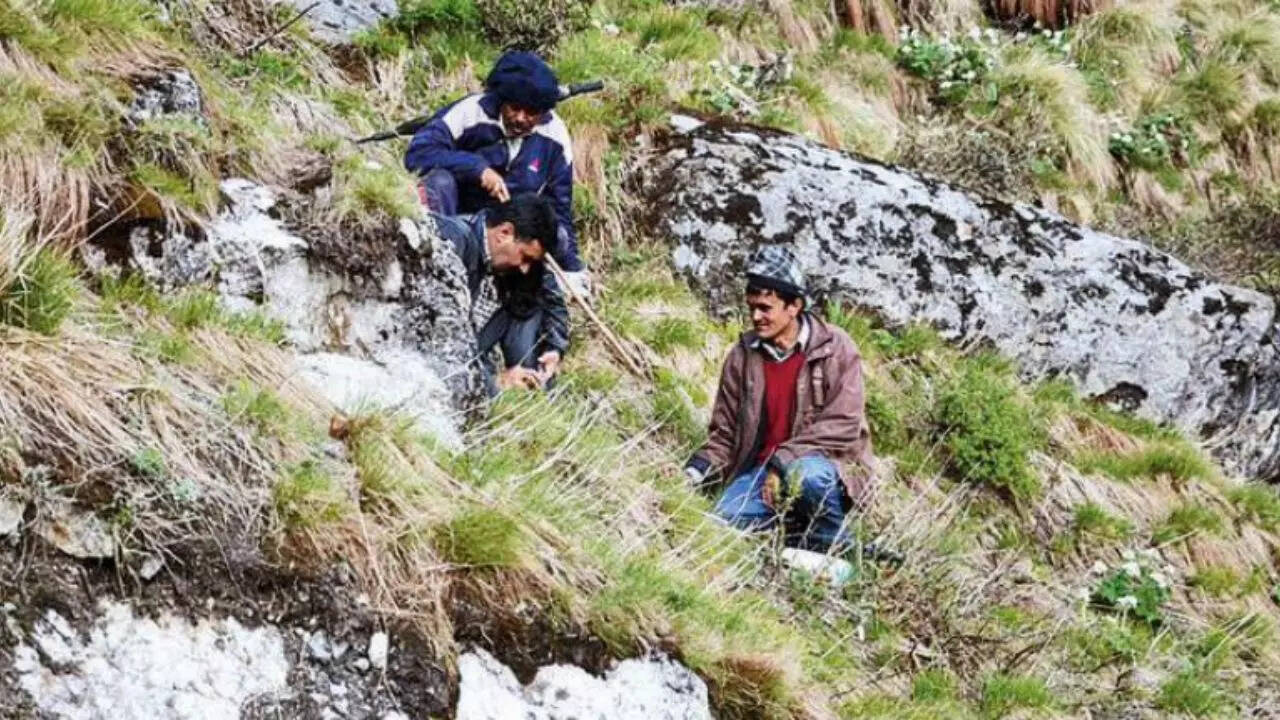Himalayan Viagra: Three ‘Himalayan Viagra’ pickers missing after Nepal avalanche – Times of India
Every year, thousands of villagers in Nepal and Tibet harvest the parasitic fungus Cordyceps sinensis, known locally as yarchagumba, which grows on the body of a caterpillar.
It can fetch huge sums in neighbouring China, where it is used in herbal medicines, and is only found at certain elevations for a few weeks each year.
The group of 15 were in search of yarchagumba in the highlands of the Mugu district when they were hit by an avalanche on Saturday.
Rescuers were hiking to the remote site after a helicopter was unable to land because of snowy weather, district official Mohan Bahadur Thapa told AFP on Monday.
Yarchagumba, which means “summer plant, winter insect” in Tibetan, is only found at altitudes above 3,500 metres (11,500 feet) and forms when the parasitic fungus lodges itself in a caterpillar, slowly killing it.
No definitive research has been published on the beneficial qualities of the fungus, but Chinese herbalists believe it boosts sexual performance.
Boiled in water to make tea, or added to soups and stews, it is believed to treat a variety of ailments from fatigue to cancer.
Over-harvesting slashed populations by at least 30 percent over 15 years by 2020, according to the International Union for the Conservation of Nature, which listed it as “vulnerable” to extinction in its directory of threatened animal and plant species.
Officials are still searching for two more missing yarchagumba collectors in the western Darchula district, after recovering three bodies from the avalanche-hit area last week.
Spring is the beginning of Nepal’s climbing season when nearly a thousand mountaineers will try to summit Everest.
Last month, three Nepali guides died after a chunk of falling glacial ice swept them into a deep crevasse on the avalanche-prone mountain.
function loadGtagEvents(isGoogleCampaignActive) { if (!isGoogleCampaignActive) { return; } var id = document.getElementById('toi-plus-google-campaign'); if (id) { return; } (function(f, b, e, v, n, t, s) { t = b.createElement(e); t.async = !0; t.defer = !0; t.src = v; t.id = 'toi-plus-google-campaign'; s = b.getElementsByTagName(e)[0]; s.parentNode.insertBefore(t, s); })(f, b, e, 'https://www.googletagmanager.com/gtag/js?id=AW-877820074', n, t, s); };
window.TimesApps = window.TimesApps || {}; var TimesApps = window.TimesApps; TimesApps.toiPlusEvents = function(config) { var isConfigAvailable = "toiplus_site_settings" in f && "isFBCampaignActive" in f.toiplus_site_settings && "isGoogleCampaignActive" in f.toiplus_site_settings; var isPrimeUser = window.isPrime; if (isConfigAvailable && !isPrimeUser) { loadGtagEvents(f.toiplus_site_settings.isGoogleCampaignActive); loadFBEvents(f.toiplus_site_settings.isFBCampaignActive); } else { var JarvisUrl="https://jarvis.indiatimes.com/v1/feeds/toi_plus/site_settings/643526e21443833f0c454615?db_env=published"; window.getFromClient(JarvisUrl, function(config){ if (config) { loadGtagEvents(config?.isGoogleCampaignActive); loadFBEvents(config?.isFBCampaignActive); } }) } }; })( window, document, 'script', );
For all the latest world News Click Here


